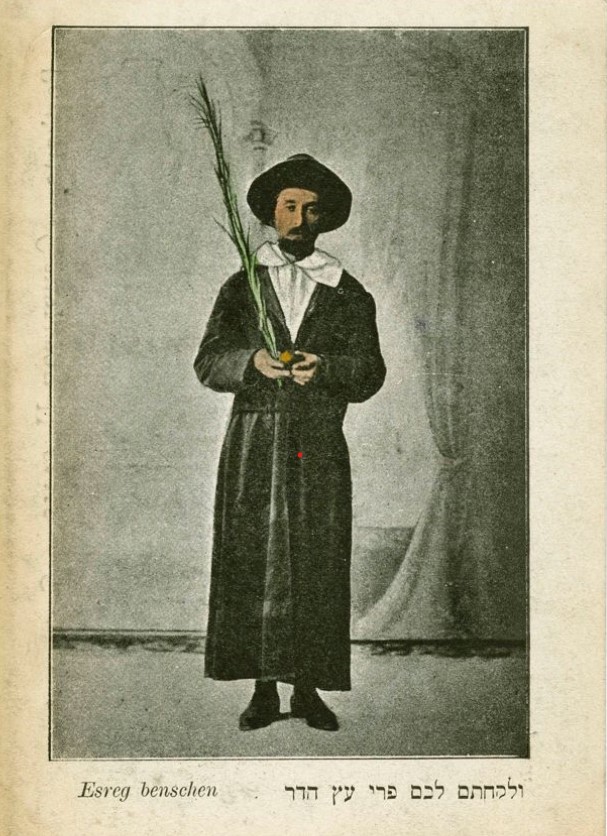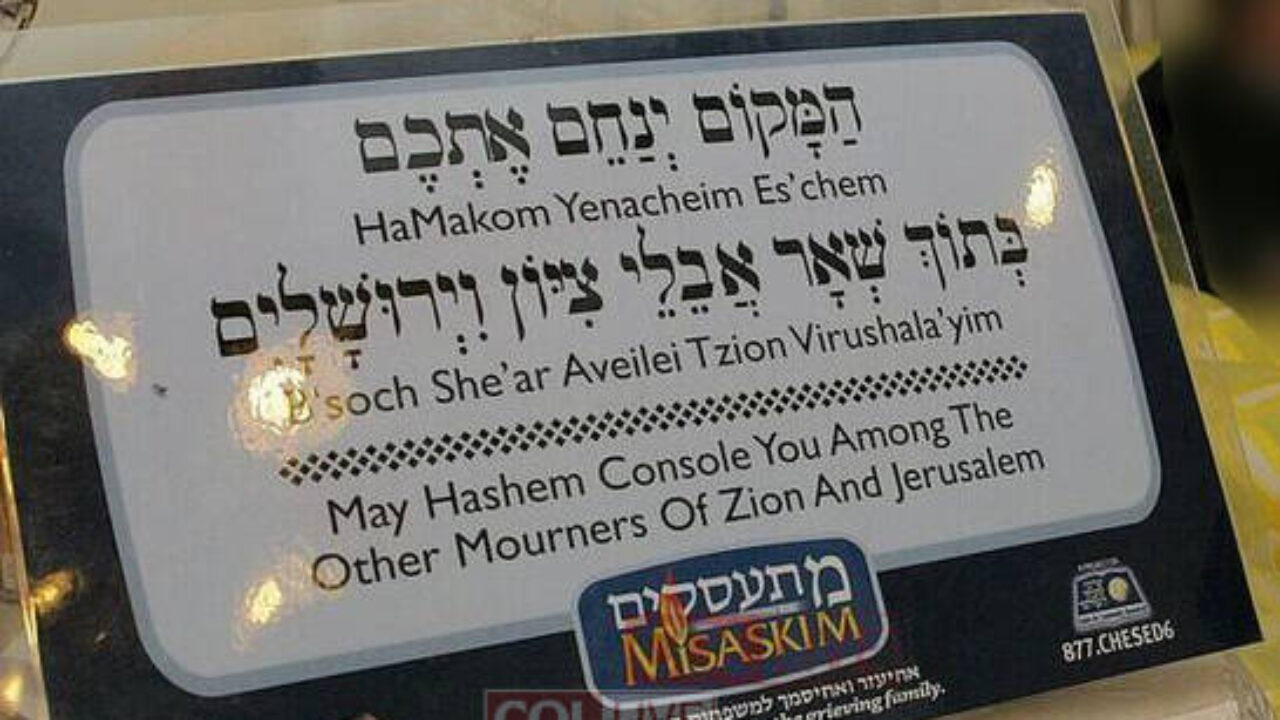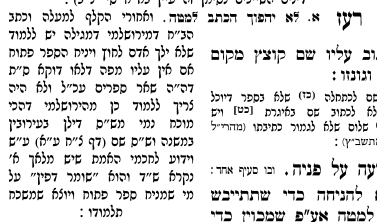BSD
Suka 33a.
Shvat 17, 5782. 01/18/2022
1- We once again began to discuss a global
Sha”s topic. יש דיחוי אצל מצוות, או לא
YESH DICHUY ETZEL MITZVOS or EIN DICHUY ETZEL MITZVOS
In general it means:
“Pushed off.” This concept applies to cases in which a specific object is chosen for the fulfillment of a Mitzvah. If at one point, the item is unfit for use as required, then Dichuy says that it may no longer be used, even if afterwards it becomes fit.
Hadas which grew a Tamar on Yom Tov
If, for example, one sanctifies an animal that has a Mum (blemish), this Dichuy idea would not allow that animal to be offered upon the Mizbe’ach even after it has healed.
This wide ranging topic has many many facets.
2- Pertaining to our Gemara – To simplify the concept we chose an example that is a bit humorous. A fellow walks into shul on the first day of Sukkos and shows off his Lulav. He points out that this year he was able to acquire some ‘designer’ הדסים…. Not only are the leaves a bright neon green , they are also adorned with red berries!

The Rov points out to him that since there are more berries than leaves, his designer הדסים are פסול. As we learned in the Mishna on 32b, – If it has more berries than leaves – פסול
So this fellow walks out of Shul with his Lulav, and quietly bites off the berries. [If he ate them, then he made a שהכל as per last week’s shiur. And he ate them in a Sukkah….]

He walks back, all smiles, into the Shul. ..

3- So the question now is: What is the status of such a Lulav?
Here is where דחוי אצל מצוות comes into play. Since, prior to his removing the berries, the Lulav was פסול, can it be brought ‘back to life’ or not. If one accepts the idea of דיחוי, that would mean that such a Lulav can never be re-Koshered.

Brought back to life
[The other issue is that he Koshered his Lulav by default. Since it was already bound, and פסול, his Lulav became Kosher indirectly – תעשה ולא מן העשוי. More on this next Shiur IY”H]
4- In regards to קדשים this דחוי concept is accepted by all. Example: If on the way to pour blood on the מזבח, the Kohen temporarily hands the bowl to an ישראל, the blood is considered דחוי. [see Zevochim 34b].
Or if in the middle of the קרבן process the מזבח becomes פסול and is then repaired. דיחוי.
However in regards to מצוות, Rav Yirmiya is unsure. Are מצוות like קדשים/קרבנות or not?
5- We mentioned the fundamental idea from the Rosh. His explanation is the basis for this discussion.
In Short: In קדשים, we are dealing with an object. If the item becomes invalid, even if only temporarily, it cannot come back to its original state. יש דיחוי.

In regards to מצוות however, it is the person that is מחוייב, and whether or not the object is valid to use or not, his personal חיוב never changed.
6- We mentioned another interesting example, this one involving the ‘time’ factor of a מצווה. A family is on a cruise ship, making Aliyah to ארץ ישראל. Once they arrive, they will become Israelis and need to keep only one day of Yom Tov.

Arriving at Haifa
[We digressed to discuss this topic and
מנהג חב”ד, and will bl”n talk about it next week. Very interesting topic].
This family arrives early in the morning on the second day of Yom Tov. Before disembarking, they were ‘from חוץ לארץ ‘ and needed to keep two days Yom Tov. They made Kiddush the night before.
They get off the boat and realize the men have not davened yet. Had they davened on the boat they would not put on Tefillin since they are still in Yom Tov mode. Now, when they set foot in ארץ ישראל, since it is a regular weekday, they need to daven with תפילין.
Simple enough.
Or….. maybe not!
Since at the beginning of the day (the time frame for תפילין) they were פטור, perhaps the concept of דיחוי would cause a פטור for the rest of the day!
7- We spoke about the מחלוקת of the Maharam of Rutenberg and his student the רא”ש, concerning a boy who became a גדול during שבעה R”L. Prior to becoming a Gadol, he was not obligated to sit שבעה. If the idea of דיחוי applies to מצוות as well, he may not need to sit שבעה at all. Rosh MK, 3, 96.

8- Also discussed was a boy becoming Bar Mitzvah in the middle of Shabbos, meaning that for the first few hours of Shabbos he didn’t have a שבת at the דאורייתא level. What is his Shabbos status after becoming a גדול?
9 – We concluded with discussing the human nature to forget….. and the מנהג to close the ספר when stepping out of the room.

The Sha”ch (YD 277) writes that the ‘demon’ that causes to forget one’s learning is called Shin Daled. שומר דפין. Keeper of the Pages . Therefore one should always close the sefer prior to leaving the room.

10 – We mentioned what the Arizal (EC 15) says that the demon’s name is MAS. מ”ס. Which equals 100. He connects it with the Gemora in Chaggiga (9a) about the importance of learning everything 101 times. By reviewing one more than 100, he overpowers this demon (100) and will not forget. See Tanya chapter 15.
…ובזה יובן מ”ש בגמרא דעובד אלהים היינו מי ששונה פרקו מאה פעמים ואחד
פרק טו, תניא
11 – We concluded with the
כלי יקר
( ואתחנן ) that points out that the word זכר, to remember equals 227. On the other hand, שכח to forget, equals 328. A difference of 101.
Meaning, that forgetfulness has a natural advantage over remembering by 101.
This forgetfulness is overcome by reviewing 101 times!!!
in his words: Every time one reviews his learning he weakens this מלאך that causes to forget. If he reviews it 101 times, he totally weakens this מלאך and enters into the domain of the מלאך that is in charge of remembering.
וכשחזר ק”א פעמים החליש כל כוחותיו היתרים ונכנס תחת יד המלאך הממונה על הזכרון ולא ישכח עוד.
